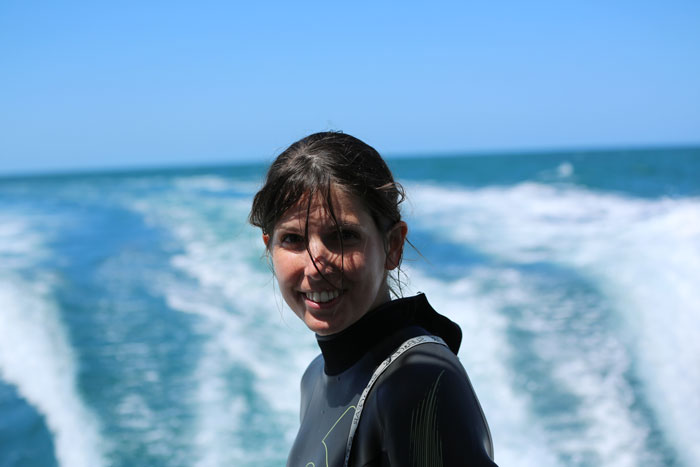Dr. Lucille Chapuis, Postdoc, University of Auckland
Marie-Curie Fellow
After a BSc and MSc in Evolutionary Biology and Conservation from the University of Lausanne, in Switzerland, I completed a PhD in Neuroecology at the University of Western Australia. As a sensory ecologist, I aim to understand how aquatic organisms sense and adapt to their everchanging environment. I especially focus on the hearing systems of marine fauna and explore this sensory modality using a multidisciplinary toolset, including morphological, bioimaging, electrophysiological and behavioural techniques.

Postdoctoral research
Fishes use their ears at every stage of their life history to navigate, locate prey and predators, and find mates. Compared to other animals, there is an extraordinary diversity in fish inner ear, shaped by an interplay of physical, evolutionary, functional and ecological factors. I am a currently funded by a Marie-Curie Fellowship to investigate the functional significance and the driving force leading to the differences in fish hearing systems, focusing on elasmobranchs (sharks, rays and skates), one of the most basally positioned vertebrate clades possessing an inner ear.
Twitter: @sharkslikejazz
